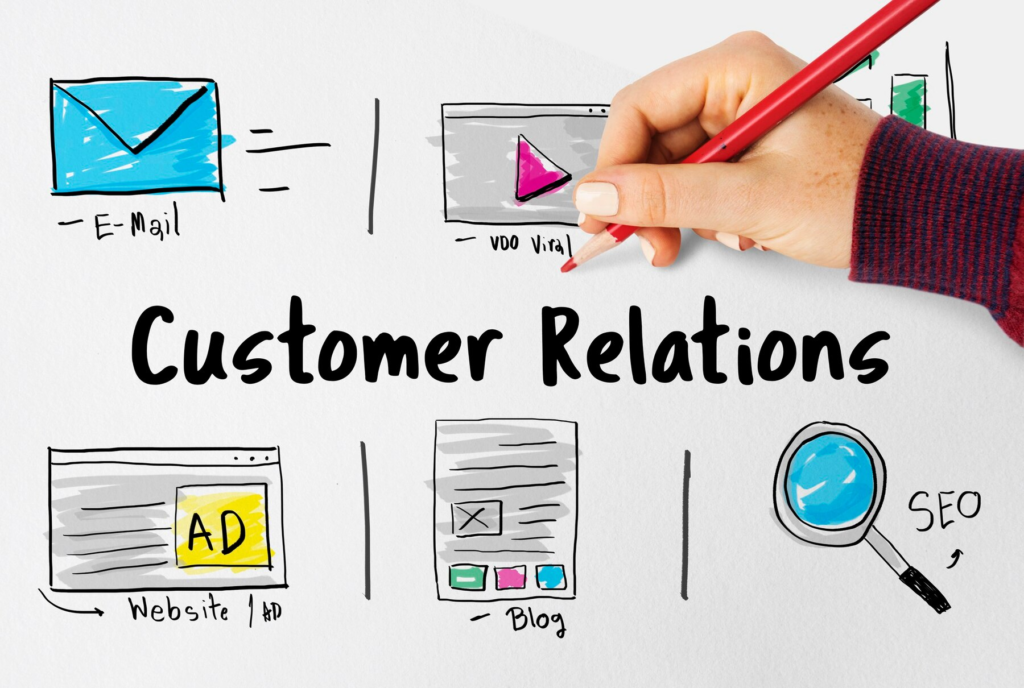The Benefits of Digital Marketing: A Comprehensive Guide
- Hanzla Ijaz
- digital marketing
- 0 Comments
|
Getting your Trinity Audio player ready...
|
Digital marketing presents a multitude of avenues, such as social media, email marketing, and content marketing, allowing businesses to engage directly with their audience. This direct interaction significantly benefits brands by offering insights into customer preferences and behaviors, which in turn fosters a heightened sense of community and loyalty.
Enhanced Customer Engagement
Leveraging social media platforms, companies can initiate conversations with customers, addressing their questions and concerns in real-time. Quick responses to inquiries, complaints, and feedback play a crucial role in enhancing customer satisfaction, as they reassure customers that their voices are being heard and valued. For instance, addressing a complaint promptly on Twitter or responding to a query on Facebook shows that a brand is attentive and committed to providing excellent customer service.

In addition, email marketing enables personalized communication. By segmenting their email lists based on various criteria such as purchase history or engagement levels, businesses can tailor their messages to meet the specific needs and interests of different customer groups. Personalized emails not only improve open and click-through rates but also deepen the connection between the brand and the customer, as they demonstrate a clear understanding of individual preferences.
Content marketing, through blog posts, articles, videos, and other forms of content, offers another avenue to engage with customers. By providing valuable and relevant content, businesses can establish themselves as industry experts and build trust with their audience. Moreover, interactive content like quizzes, polls, and infographics can further boost engagement by encouraging active participation from customers.
Overall, the benefits of digital marketing in terms of customer engagement are manifold. By utilizing these various digital channels effectively, businesses can create a dynamic dialogue with their audience, leading to stronger relationships and improved customer loyalty.
Cost-Effective Strategies
One of the primary benefits of digital marketing is its cost-effectiveness compared to traditional marketing methods. Traditional marketing—such as television, radio, print, and outdoor advertisements—often requires substantial financial investment and does not always guarantee a commensurate return on investment (ROI). In contrast, the lower entry costs associated with digital marketing allow businesses to maximize their marketing budgets and achieve higher ROI.

Digital marketing channels such as online advertising, social media campaigns, and email marketing offer flexibility and scalability, enabling even small businesses and startups to launch impactful campaigns without significant financial strain. For example, pay-per-click (PPC) advertising allows businesses to set budgets according to their needs, ensuring that they only pay when potential customers engage with their ads. This model of payment can be instrumental in effectively managing costs while targeting specific demographics.
Moreover, social media platforms provide a cost-efficient means for reaching large audiences. Businesses can create and share content for free, build a following, and engage directly with their customer base. Paid social media advertising options, such as Facebook Ads or Instagram Promotions, also offer precise targeting capabilities, thereby enhancing the effectiveness of the campaigns. As a result, businesses can achieve significant organic growth without heavy investment.
Similarly, email marketing is another cost-effective digital marketing tool. It allows businesses to reach their audience directly in their inboxes, offering personalized content and promotions. Email campaigns are relatively inexpensive compared to direct mail campaigns, and the ability to track open rates, click-through rates, and conversion rates provides valuable insights into consumer behavior and campaign performance. This data-driven approach ensures that marketing dollars are spent wisely, further enriching the benefits of digital marketing.
Overall, digital marketing’s affordability and high ROI make it an attractive proposition for businesses of all sizes. The ability to allocate budgets efficiently and compete with larger corporations provides a significant competitive edge, particularly for small businesses and startups.
Global and Local Reach
The benefits of digital marketing are manifold, particularly when it comes to breaking down geographical barriers. Unlike traditional forms of marketing, digital marketing enables businesses to reach a global audience with astonishing ease. This broad reach is especially beneficial for small businesses keen on expanding their market presence beyond local confines. Through various online platforms, businesses of all sizes can advertise products and services to audiences across different cultures and regions, thus maximizing their market potential.

Moreover, the advantages are not limited to global reach alone; digital marketing also excels in facilitating local engagement. Businesses can leverage local SEO strategies to make ensure they are visible to potential customers in specific geographical locations. Techniques like employing localized keywords, optimizing Google My Business listings, and encouraging customer reviews can significantly enhance the visibility of local businesses. This targeted approach ensures that businesses not only reach a broader audience but also attract local consumers more effectively.
Targeted advertising further augments the reach of digital marketing by allowing businesses to focus on particular segments of the population. Advanced analytics tools and algorithms can dissect consumer behavior and preferences, enabling companies to tailor their campaigns towards specific demographics. For example, pay-per-click (PPC) campaigns and social media ads can be customized to appear only to users who meet predefined criteria, thus improving the relevance and impact of marketing efforts.
Additionally, the use of analytics and optimization tools ensures that businesses achieve accurate and measurable results. These tools provide invaluable insights into campaign performance, helping businesses understand what works and what doesn’t. By analyzing click-through rates, conversion rates, and other key performance metrics, companies can continuously refine their strategies to optimize outcomes. Therefore, digital marketing not only broadens global reach but also offers precise methods for enhancing local engagement, making it an indispensable tool for modern businesses.
Measurable and Personalized Marketing
One of the most notable advantages of digital marketing is its unparalleled ability to measure and analyze campaign performance in real-time. This data-driven approach enables businesses to make informed decisions, continuously optimizing their strategies for improved results. With traditional marketing channels, tracking the effectiveness of campaigns can often be complex and imprecise. However, digital marketing offers a range of sophisticated tools and platforms that provide comprehensive analytics.

Through methods such as web analytics, social media metrics, and email marketing reports, businesses can gain insights into various aspects of their campaigns. These include user engagement, click-through rates, conversion rates, and return on investment (ROI). This wealth of data allows for granular measurement and adjustment, ensuring that marketing efforts are both efficient and effective.
Personalization is another significant benefit of digital marketing. By leveraging customer data, companies can craft marketing messages and content that resonate with individual preferences and behaviors. This tailored approach is made possible through techniques such as behavioral targeting, retargeting, and personalized email campaigns. Personalization not only enhances customer experience but also increases the likelihood of conversion, leading to higher sales and stronger brand loyalty.
In addition, techniques like influencer marketing and precision targeting through platforms like social media and search engine marketing can significantly boost the effectiveness of digital campaigns. Influencer marketing leverages the credibility and reach of industry influencers to promote products and services, while precision targeting ensures that marketing messages reach the most relevant and receptive audiences. By making use of these advanced targeting techniques, businesses can achieve higher engagement rates and ultimately drive increased sales.
Conclusion
In summary, digital marketing provides a multitude of benefits for businesses of all sizes. From enhanced customer engagement and cost-effective strategies to global reach and measurable results, the advantages are clear. By leveraging various digital marketing techniques such as content marketing, email marketing, and social media marketing, businesses can achieve greater brand awareness and higher conversion rates. Additionally, digital marketing offers the flexibility to create personalized, targeted campaigns that lead to increased customer loyalty and sales growth. Whether for students, small businesses, or large enterprises, the effective use of digital marketing can drive significant success in today’s competitive landscape.






